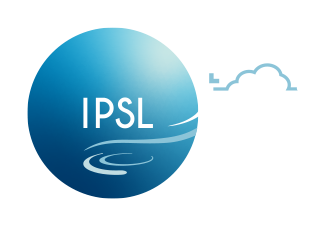Community Infrastructure
As ESPRI provides a numerical infrastructure dedicated to climate data and services, it is aimed at the wider climate science community (climatology, physics, hydrology, planetology, etc) from research institutes and universities.
The users of ESPRI repository form a multi-level community made up of active teams of scientists from the public sector covering a range of expertise in environmental sciences (climatology, physics, hydrology, planetology, etc.). They contribute to scientific research and produce data in the fields covered by the ESPRI repository. A smaller proportion of ESPRI users come from the private sector (e.g., French energy companies). For these latter user profiles, ESPRI provides contractual access to data with specific support.
ESPRI is primarily driven by the users’ need from the IPSL laboratories. At the national level, ESPRI supports the activities of researchers in two Research Infrastructures (RI) :
- CLIMERI-France (the National Climate Modeling Infrastructure) is responsible for the French numerical simulations of the Research Program on Global Climate Change and provides access to results, together with access to analysis services and software tools.
- AERIS (the Atmospheric Data and Services Center) as a part of the RI DATA-TERRA created in 2016, aims to facilitate and enhance the use of atmospheric data whether from satellites, ground based, airplanes or balloons. AERIS consists of four data and service centers across France.
ESPRI also raises the need of French users on the forefront of the European scene by contributing to two European RIs:
- The European Network of the Earth System modeling (ENES), launched in 2001, gathers the community working on Earth’s climate system modeling with the aim to accelerate progress in this field. This community is strongly involved in the assessments of the Intergovernmental Panel on Climate Change (IPCC) and provides those predictions, on which EU mitigation and adaptation policies are elaborated.
- The Aerosol, Clouds and Trace Gases Research Infrastructure (ACTRIS) develops new technologies and algorithms for monitoring activities relevant for climate and air quality models, satellite retrievals and forecast systems, serving a vast community of users working in research, space agencies and operational services. It facilitates the integration of the community around common strategic objectives, which will bring the economy of scale and harmonious development of the Infrastructure, including the user’s needs.
Finally, ESPRI provides data to the international climate modeling community through its heavy involvement in the coordination and policy of the international platform called the Earth System Grid Federation (ESGF), and all its related services supporting the international Couple Modeling Intercomparison Projects (CMIP). The CMIP exercises are carried out by the World Climate Research Program (WCRP) and feed the IPCC Assessment Reports (AR).
IPSL Centre for Earth Observation (ICEO)
The Centre for Earth Observation supports and coordinates IPSL resources dedicated to measurement systems and observational data. In Earth observations, which includes space missions, multi-instrumented surface and airborne observations, major measurement campaigns and measuring of geochemical tracers, IPSL plays a dual role: a coordination role at the regional level to strengthen the collective Earth observation activities to improve our understanding of the climate system. a data and service centre for the National Atmosphere Data Centre (AERIS) through the ESPRI services.
IPSL Climate Modelling Centre (ICMC)
The Climate Modelling Centre explores physical, chemical and biogeochemical aspects of the Earth’s climate. It brings together modelling teams from the various IPSL laboratories who study the different parts of the climate system (atmosphere, ocean, continental surfaces, cryosphere) and their couplings. Studies focus on the functioning of the climate system, its variability and climate change, whether of natural origin or due to human activities by developing and using an integrated model of the Earth system to carry out climate simulations. These results are managed, analysed and distributed through ESPRI facilities for and within the Coupled Model Intercomparison Project (CMIP) and the Coordinated Regional Climate Downscaling Experiment (CORDEX).
University Observatories
The IPSL activities of collecting, archiving and making available different types of data started in the 1990s. Since then, it has developed continuously beside the creation and growth of observatories in French universities (OSUs). The IPSL services have therefore gradually been integrated into the Île-de-France OSUs, in particular the OVSQ and Ecce Terra, which co-host some of the ESPRI facilities and services. The OSUs remain specific and respond to a regional integration and mutualisation of scientific platforms. It is therefore important in the Paris region to ensure coherence between the digital strategy plans of the IPSL and the OSUs.
Local IT Services Departments
Within the IPSL federation, ESPRI is the preferred contact for local IT staff on the Pierre-et-Marie-Curie campus of Sorbonne University and the École Polytechnique. It has one dedicated room on each site to host the machines and ensure a fair administration of the resources, the network in agreement with the security constraints. Thus, ESPRI is at the interface between the IT Departments of the hosting sites and the IPSL laboratories.
National High-Performance Computing Centres (HPC)
The ESPRI centre is part of the national high-performance computing ecosystem as a Tier 2: it is a thematic platform combining computing and data, linked to national and European computing centres. Dedicated broadband network connections have been set up between ESPRI and the two national GENCI HPC at Commissariat à l’Énergie Atomique (CEA) and at the Institut du développement des Ressources en Informatique Scientifique (IDRIS).
Research Infrastructures (RI)
ESPRI is driven by the needs of the national and international scientific communities. The IPSL Computing and Data Centre is integrated into national, European and international Research Infrastructures (RI) to which ESPRI contributes and in which it represents the IPSL. In particular, it constitutes an essential building block of the following RIs:
CLIMERI-France
CLIMERI-France is structured around five main activities to ensure the production, analysis and dissemination of climate simulations, in close interaction with the international activity of the World Climate Research Program and the various users of these simulations. CLIMERI-France also relies on the modelling resources and expertise of:
- Institut Pierre-Simon Laplace (IPSL)
- Centre National de Recherche Météorologique (CNRM)
- Centre Européen de Recherche et de Formation Avancée pour le Calcul Scientifique (CERFACS)
- Météo France
- University of Louvain-la-Neuve (Belgium)
- Institut des Géosciences de l’Environnement (IGE)
- University of Bordeaux (EPOC)
- Laboratoire d’Océanographie Physique et Spatiale (LOPS)
- Laboratoire d’Etude en Géophysique et Océanographie Spatiale (LEGOS)
Data-Terra
Data-Terra organises data access in an integrated way, by making available data products and services related to the observation of the Earth system, via four French data clusters: AERIS (Atmosphere), FORM@TER (Solid Earth), THEIA (Continental Surfaces), ODATIS (Oceans and Coasts). Data-Terra also relies on resources and expertise of:
The European Networks for Earth System Modelling (ENES)
The European Networks for Earth System Modelling (ENES) gathers 47 partners from academic, public and industrial world to work together and cooperate to discuss strategies to accelerate progress in climate and Earth system modelling and understanding. IS-ENES also relies on computing resources of:
- Centre for Environmental Data Analysis (CEDA – UK)
- Deutsche Klimarechenzentrum (DKRZ – Germany)
- Centro Euro-Mediterraneo sui Cambiamenti Climatici (CMCC – Italy)
- Swedish Meteorological and Hydrological Institute (SMHI – Sweden)
- University of Cantabria (UCAN – Spain)
The Earth System Grid Federation (ESGF)
The Earth System Grid Federation (ESGF) is an interagency and international collaboration that develops, deploys and maintains software infrastructure for the management, dissemination, and analysis of model output and observational data. ESGF also relies on the contribution and funding from:
- Lawrence Livermore National Laboratory (LLNL – US)
- National Computational Infrastructure (NCI – Australia)
- National Aeronautics and Space Administration (NASA – US)
- National Oceanic and Atmospheric Administration (NOAA – US)

